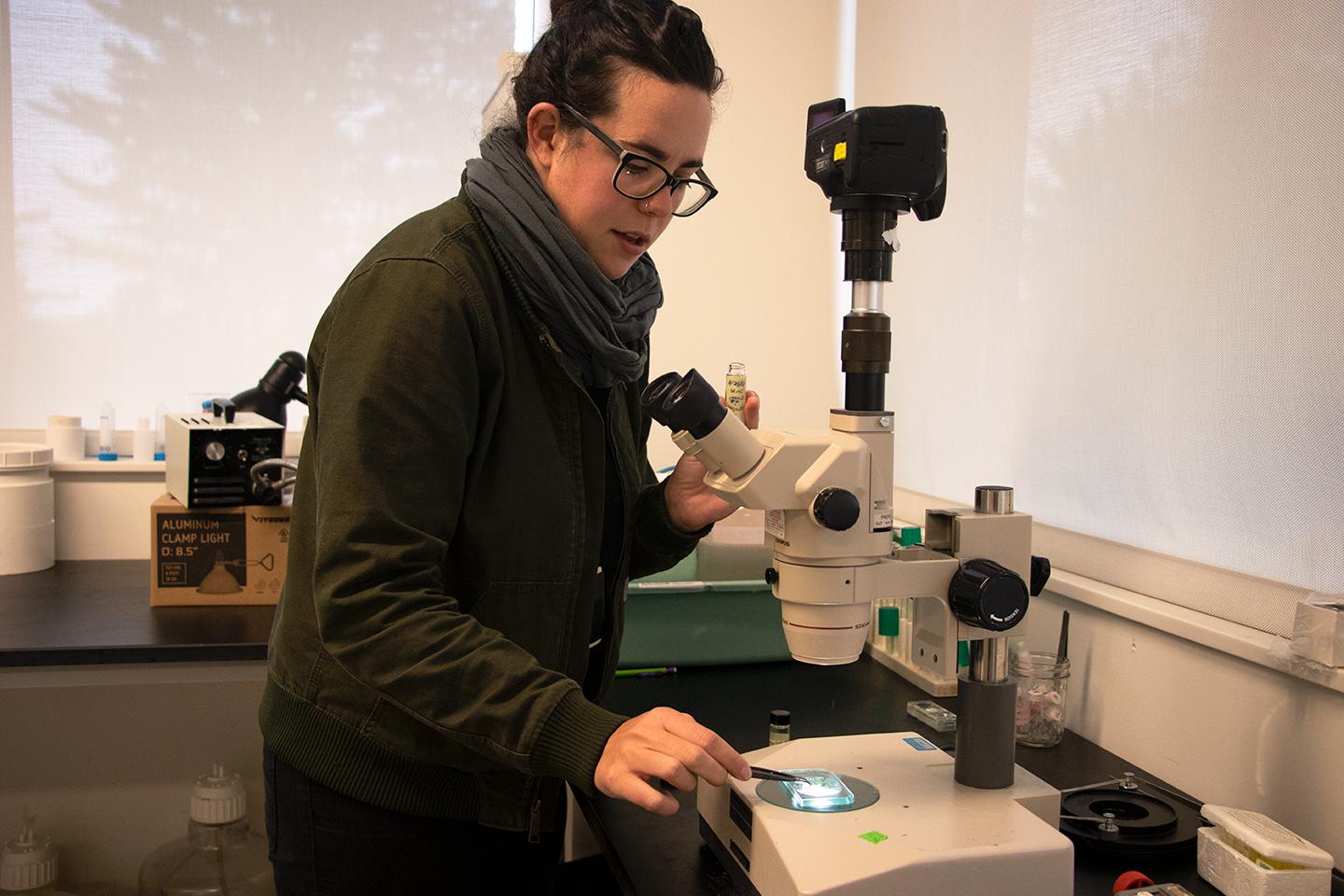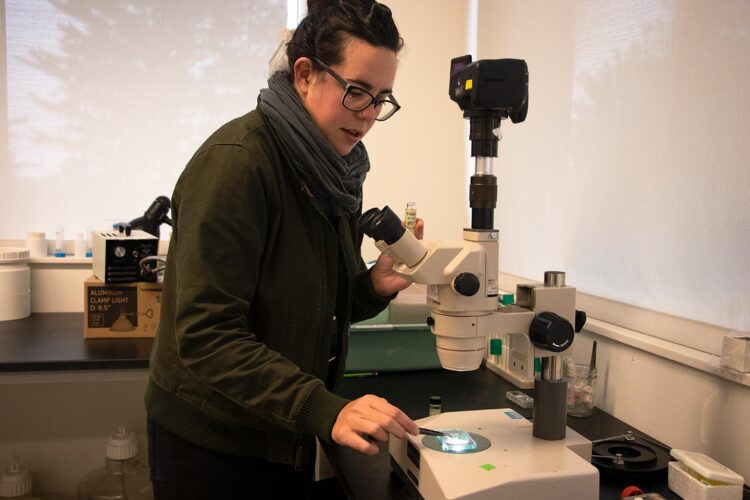
Credit: Bigelow Laboratory for Ocean Sciences
The American lobster, which supports the most valuable fishery in North America, may be more susceptible to the effects of climate change than previously thought, according to a new study published in Ecology and Evolution. This finding could help fishery managers anticipate the long-term effects of climate change for one the nation’s most precious natural resources.
The American lobster’s range extends from Atlantic Canada to the mid-Atlantic waters of the United States, but increased carbon dioxide emissions by humans are warming and acidifying their ocean habitat.
To date, studies of the early life stages of lobsters have concluded that ocean acidification, compared to warming, had relatively limited impact on growth and metabolism. However, according to the new publication, their genes tell a different story.
“Our study indicated that acidification is affecting these lobsters on a molecular scale,” said Maura Niemisto, lead author and research associate at Bigelow Laboratory for Ocean Sciences. “Because of environmental changes, they have genes firing at an even higher rate.”
Niemisto published the research with Bigelow Laboratory Senior Research Scientist David Fields and University of Maine Research Professor Richard Wahle, who is based at the Darling Marine Center. Co-authors Spencer Greenwood of the University of Prince Edward Island, and Fraser Clark of Dalhousie University contributed expertise in genomics. The work built on previous experiments by co-author Jesica Waller of the Maine Department of Marine Resources.
Through their genes, all living organisms have the capacity to regulate a wide range of biological processes. Changes in their environment can influence this. For example, many organisms have a heat shock protein gene. When they get overheated, the environmental stress triggers cells to produce a protein that helps the organism adapt.
This study focused on the postlarval stage of lobsters because they live in the upper water column, where ocean acidification and temperature are changing quickly. In addition, they are planktonic, which means they have limited control of their movement to avoid unfavorable environments.
The scientists conducted laboratory experiments to expose postlarval lobsters to the temperature and acidity levels projected for the end of the century. Under these conditions, they found lobsters’ cells adjusted gene regulation to support shell structure and immune functions.
This response was stronger in relation to increased acidity than increased temperature. The study also revealed that, when their environment was both warm and acidic, the lobsters showed significantly more genetic response than when exposed to either stressor alone.
“Stressors on an organism have the ability to compound into something that makes it really hard to grow through all the developmental stages to get to a full-grown lobster,” said Niemisto, who conducted the research as part of her master’s thesis in marine biology at UMaine.
The implications of these responses remain unclear for lobsters in the Gulf of Maine, which is acidifying and warming faster than the majority of the world’s oceans.
While the results suggest that lobsters have the genetic capacity to adapt to their changing environment, it may come at a cost. The genetic processes take a significant amount of energy, which comes from a limited budget.
“So, if they’re spending a lot of energy on building proteins to respond to stressors, something else has to give,” Niemisto said.
Researchers are now looking to see exactly where that extra energy is coming from and what is being given up. For example, if lobsters have to expend energy on maintaining their shells, they may not be able to invest in their immune system.
The authors say the next step is to better understand these genetic responses in relation to larger-scale changes. Pairing this study’s findings with further research on the ecology and biology of lobsters can help reveal their likely response as a population.
“This study has cracked open the door to our understanding of the basic biology of lobster larvae and their response to the changing environment,” said co-author Fields. “However, there is still a lot to learn. As the use of these genetic tools grows, so will our understanding of the larval lobster biology and the impact of climate change on this iconic fishery.”
###
This research was supported by funding from the National Oceanic and Atmospheric Association’s Ocean Acidification and National Sea Grant programs, and the National Science Foundation.
Bigelow Laboratory for Ocean Sciences is an independent, nonprofit research institute located in East Boothbay, Maine. From the Arctic to the Antarctic, Bigelow Laboratory scientists use innovative approaches to study the foundation of global ocean health and unlock its potential to improve the future for all life on the planet. Learn more at bigelow.org, and join the conversation on Facebook, Instagram, and Twitter.
Media Contact
Steven Profaizer
[email protected]
Original Source
https:/
Related Journal Article
http://dx.





